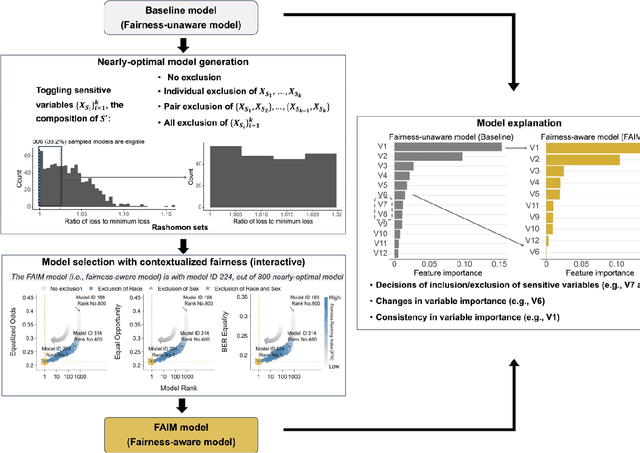Fairness-Aware Interpretable Modeling (FAIM) for Trustworthy Machine Learning in Healthcare
Paper and Code
Mar 08, 2024



The escalating integration of machine learning in high-stakes fields such as healthcare raises substantial concerns about model fairness. We propose an interpretable framework - Fairness-Aware Interpretable Modeling (FAIM), to improve model fairness without compromising performance, featuring an interactive interface to identify a "fairer" model from a set of high-performing models and promoting the integration of data-driven evidence and clinical expertise to enhance contextualized fairness. We demonstrated FAIM's value in reducing sex and race biases by predicting hospital admission with two real-world databases, MIMIC-IV-ED and SGH-ED. We show that for both datasets, FAIM models not only exhibited satisfactory discriminatory performance but also significantly mitigated biases as measured by well-established fairness metrics, outperforming commonly used bias-mitigation methods. Our approach demonstrates the feasibility of improving fairness without sacrificing performance and provides an a modeling mode that invites domain experts to engage, fostering a multidisciplinary effort toward tailored AI fairness.
 Add to Chrome
Add to Chrome Add to Firefox
Add to Firefox Add to Edge
Add to Edge